In this comprehensive list, we spotlight the top 10 human rights milestones that have indelibly shaped the trajectory of human dignity, justice, and equality. From the groundbreaking Universal Declaration of Human Rights to the landmark Geneva Conventions, each entry captures a pivotal moment when collective action, legal innovation, or courageous leadership forever altered the landscape of human rights. These milestones not only set new standards but also fuel ongoing activism, serving as both inspiration and foundation for future generations committed to the fight for universal human rights.
10- UN Declaration of Human Rights
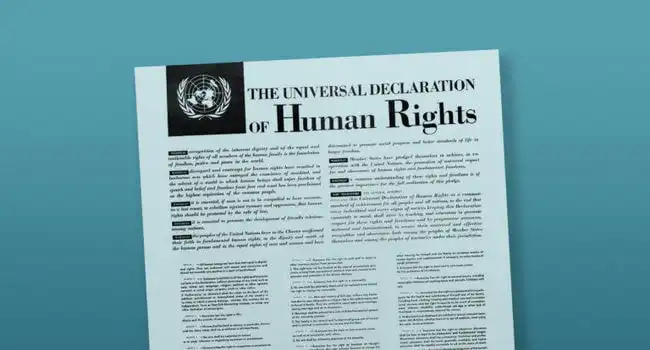
Photo Credit: IAS Express
The adoption of the Universal Declaration of Human Rights by the United Nations General Assembly on December 10, 1948, marked a transformative moment in human history. This groundbreaking document, conceived in the aftermath of World War II, laid down the fundamental rights and freedoms to which all individuals are entitled. It articulates the principles of equality, dignity, and non-discrimination, setting a universal standard for human rights. As one of the most crucial human rights milestones, the Universal Declaration has influenced numerous international treaties and national constitutions. Activists and organizations regularly cite its 30 articles when advocating for justice, equal treatment, and the upholding of human rights. Governments and international bodies look to this declaration as the moral and ethical compass guiding their policies and legislation.
9- American Civil Rights Act
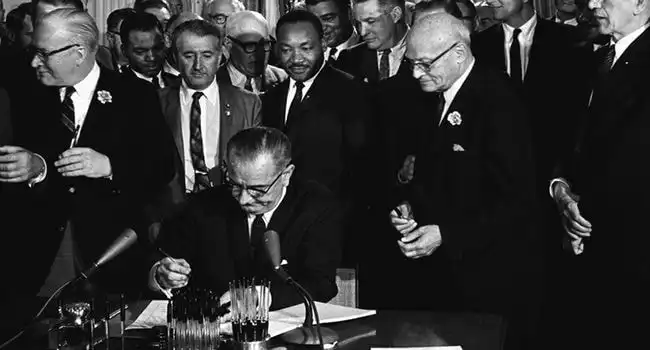
Photo Credit: Miller Center
The American Civil Rights Act of 1964 serves as another cornerstone in the history of human rights milestones. Signed into law by President Lyndon B. Johnson, this legislation aimed to put an end to the rampant racial segregation and discrimination that plagued the United States. Specifically, the act outlawed discrimination in public places, made employment discrimination illegal, and led to the desegregation of schools. Its passage signified the culmination of years of struggle and activism, notably during the Civil Rights Movement, which had fought against deeply entrenched racial barriers. This act didn’t just change laws; it transformed society. It laid down the legal framework that made it possible for subsequent generations to challenge various forms of discrimination, thereby continuing to shape the human rights landscape.
8- Women’s Suffrage
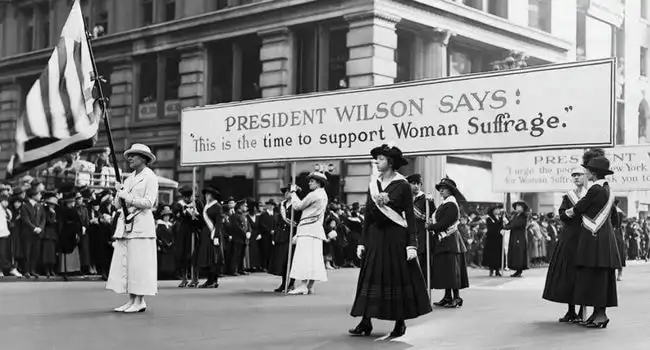
Photo Credit: My Wellesley
Women’s suffrage stands as a pivotal human rights milestone, marking a transformative period in global history. The fight for women’s right to vote spanned continents and decades, involving relentless activism, protests, and even imprisonment. The 19th Amendment to the United States Constitution in 1920 was a landmark moment, but it was far from isolated. Countries like New Zealand and Finland had already granted women the right to vote at the turn of the 20th century. The suffrage movement laid the groundwork for broader gender equality, influencing legislation and public opinion on issues ranging from workplace discrimination to reproductive rights. Activists around the world continue to draw inspiration from this watershed moment, citing it as a crucial precursor to contemporary feminist movements.
7- End of Apartheid

Photo Credit: BBC
The termination of South Africa’s apartheid system in 1994 stands as one of the most significant human rights milestones of the 20th century. This system of legalized racial segregation and discrimination had been in place since 1948, severely limiting the rights and freedoms of non-white South Africans. The end of apartheid did not come easily; it was the result of years of internal resistance and international pressure. The election of Nelson Mandela as the President of South Africa signaled the official end of this oppressive regime. Mandela’s leadership and the collective activism of countless individuals transformed a nation marred by racial inequality into a symbol of reconciliation and hope. The dismantling of apartheid has since served as an inspirational model for combating systemic discrimination worldwide.
6- Abolition of Slavery
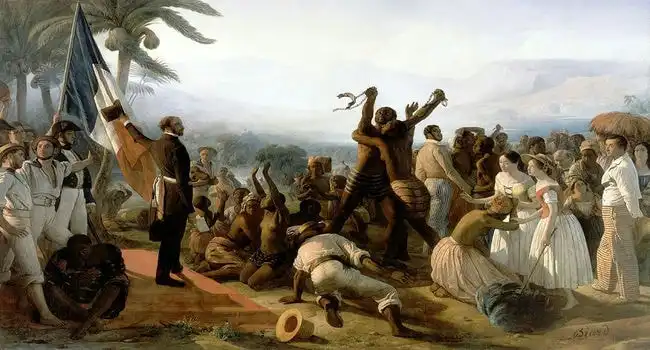
Photo Credit: Wikipedia
The abolition of slavery in various parts of the world stands as a defining human rights milestone. The Emancipation Proclamation in the United States in 1863 and the subsequent Thirteenth Amendment in 1865 legally ended slavery, but the impact was global. Countries like the United Kingdom had already started the process with the Slavery Abolition Act of 1833. The abolition movement was a prolonged struggle that involved grassroots activism, legislative action, and, unfortunately, violent conflict. The end of slavery not only redefined the concept of personal liberty but also set a precedent for human rights activism. This pivotal moment in human history showed that deeply entrenched social and economic systems could be dismantled through collective action and legal reforms.
5- Nuremberg Trials
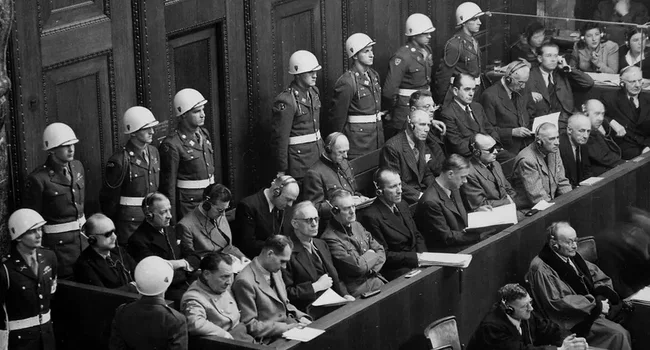
Photo Credit: Britannica
The Nuremberg Trials, conducted between 1945 and 1946, were instrumental in defining and prosecuting crimes against humanity. Following the atrocities of World War II, the international community felt an urgent need to bring perpetrators to justice. These trials were groundbreaking in many ways, setting the standards for what constitutes war crimes and establishing the principles of individual accountability. As a human rights milestone, the Nuremberg Trials laid the foundation for international criminal law and served as a precedent for future tribunals. They made it clear that “following orders” was not an acceptable defense for committing human rights abuses. The trials also contributed to the creation of several international treaties and the Universal Declaration of Human Rights.
4- LGBTQ+ Rights
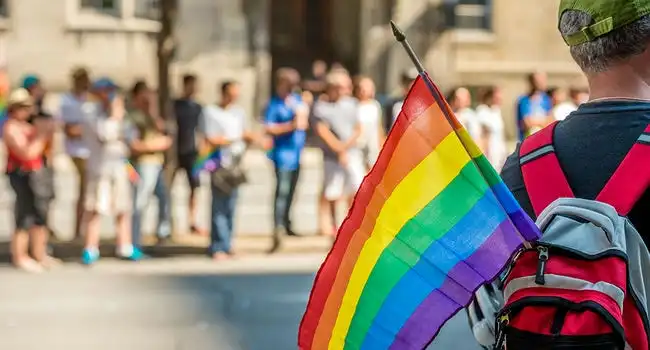
Photo Credit: Verizon
The Stonewall Riots of 1969 in New York City marked a seminal moment in the fight for LGBTQ+ rights, and they serve as a significant human rights milestone. While the struggle for equal rights and recognition for the LGBTQ+ community had been ongoing, the riots galvanized a fragmented movement into cohesive activism. Over the years, this has led to landmark decisions like the decriminalization of homosexuality in various countries and the legalization of same-sex marriage in places like the United States in 2015. Ongoing activism continues to address issues such as workplace discrimination, transgender rights, and the rights of queer individuals globally. This milestone reflects the evolving understanding of human rights to include all individuals, regardless of sexual orientation or gender identity.
3- Disability Rights
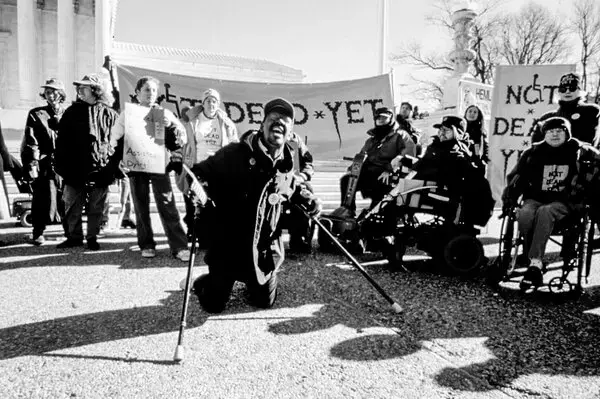
Photo Credit: New York Times
The signing of the Americans with Disabilities Act (ADA) in 1990 by President George H.W. Bush in the United States marked a significant step forward in the fight for the rights of people with disabilities. This human rights milestone inspired similar legislation around the world, including the United Nations Convention on the Rights of Persons with Disabilities in 2006. The ADA prohibits discrimination against individuals with disabilities in all areas of public life, including jobs, schools, and transportation. Its impact has been profound, opening doors for people with disabilities and creating a more inclusive society. Activists and policymakers often refer to the ADA and similar legislation when advocating for disability rights, making it a key reference point in ongoing struggles for inclusivity and equality.
2- Child Labor Laws

Photo Credit: Modern Diplomacy
The enactment of child labor laws stands as a pivotal human rights milestone that has influenced labor practices globally. One of the earliest examples is the Factory Act of 1833 in the United Kingdom, which set age and time restrictions for child labor. In the United States, the Fair Labor Standards Act of 1938 was a landmark piece of legislation that set federal standards for child labor. These laws didn’t merely change labor practices; they shifted societal perceptions about the rights and well-being of children. By setting legal age limits and working conditions for young workers, these laws have safeguarded millions from exploitation and abuse. This milestone has had a ripple effect globally, influencing international conventions and becoming a touchstone for activists fighting against child exploitation.
1- Geneva Conventions
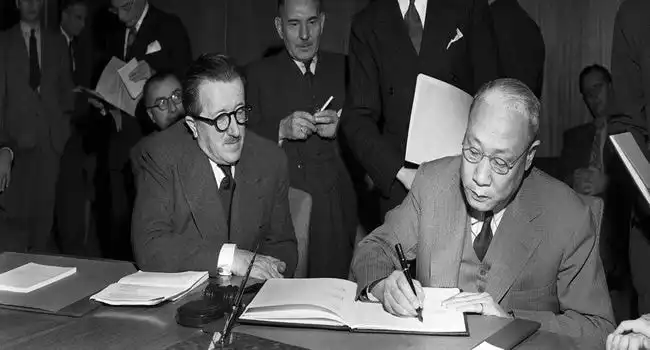
Photo Credit: United Nations
The Geneva Conventions, a series of international treaties first formulated in 1864 and later updated, represent the cornerstone of modern humanitarian law. These agreements, universally adopted by the international community, set forth the rules of war and serve as a guide for the humane treatment of wounded soldiers, prisoners, and civilians during conflicts. As a monumental human rights milestone, the Geneva Conventions have saved countless lives and maintained a semblance of human dignity in the most challenging circumstances. They have been invoked in numerous international conflicts to protect non-combatants and to prosecute war crimes. This set of treaties serves as an enduring symbol of the collective human endeavor to mitigate the horrors of war and protect basic human rights even in the direst of situations.


